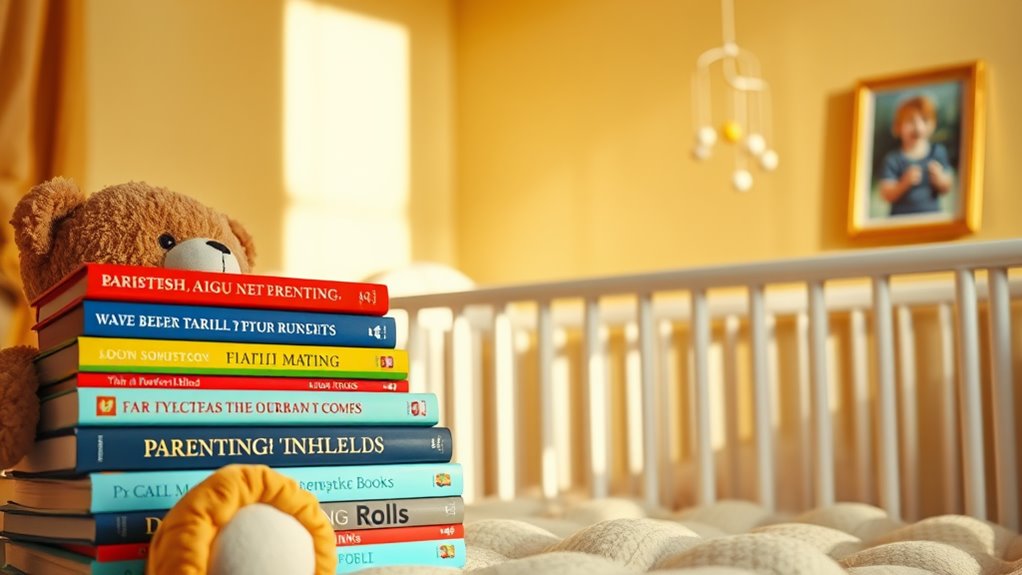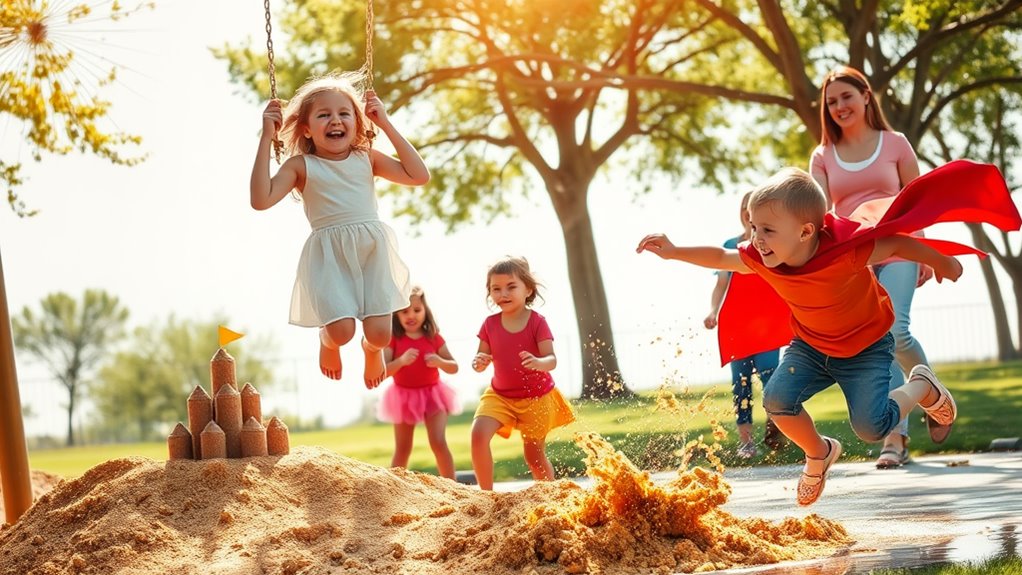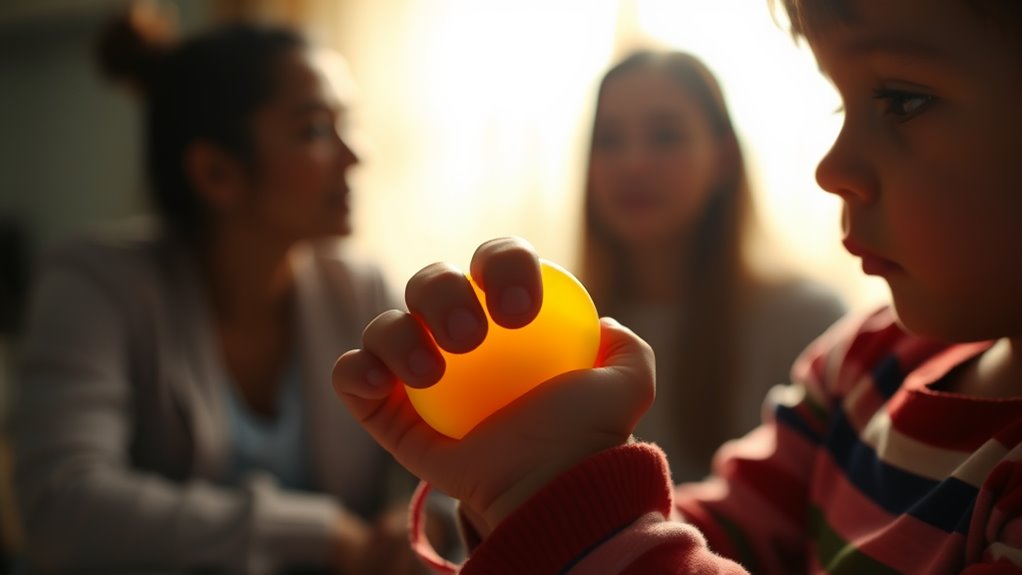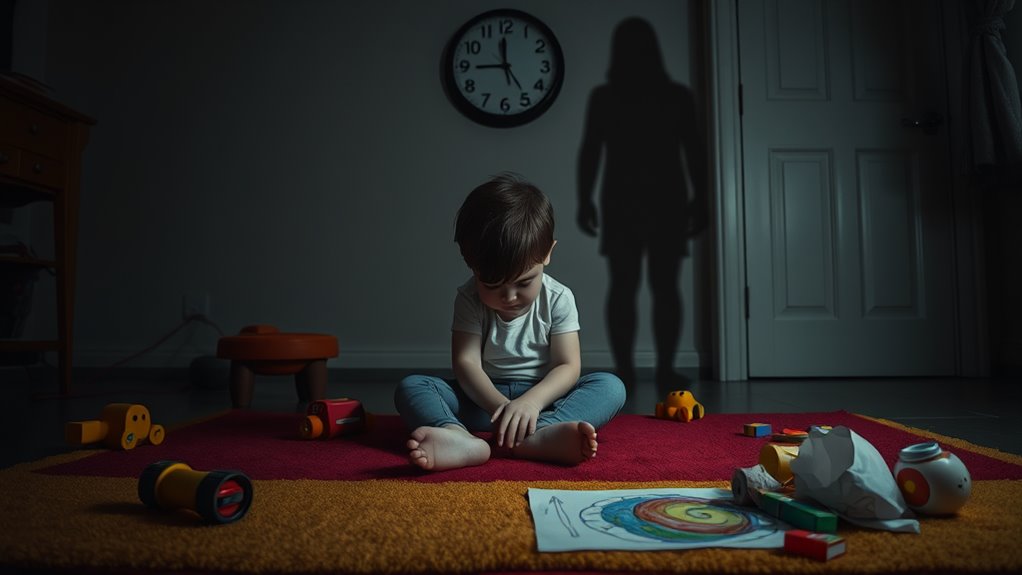10 Parenting Myths That Could Harm Your Child’s Development!
Many parenting myths can negatively affect your child’s development. For instance, believing that babies should sleep alone can reduce their emotional security. Assuming all screen time is harmful overlooks its potential for learning and creativity. The idea that discipline only means punishment fails to recognize the importance of teaching and guidance. Also, thinking breastfeeding is the only acceptable feeding method disregards individual family circumstances. Encouraging children to stifle their emotions can hinder their emotional intelligence. These misconceptions can create unnecessary stress and conflict. Understanding these myths is crucial, and you’ll find more insights that can support your child’s growth ahead.
Babies Should Sleep Alone
Many parents believe that babies should sleep alone to promote independence and ensure safety, but this isn’t always the best approach. In fact, co-sleeping can offer numerous benefits for both you and your baby. When you share a sleeping space, you foster a stronger emotional bond, which can lead to better emotional development. Your baby feels secure and comforted by your presence, making it easier for them to fall asleep and stay asleep.
Moreover, co-sleeping allows you to respond more quickly to your baby’s needs during the night. You can easily soothe them if they wake up crying, which helps establish a sense of security and trust. This immediate response can also reduce stress for both of you, making nighttime less daunting.
Of course, safety is a valid concern. To minimize risks, ensure that your sleep environment is safe: use a firm mattress, avoid heavy blankets, and keep pillows away from your baby’s sleep area. Ultimately, consider your family’s unique needs and circumstances. Sleeping arrangements should prioritize comfort and safety, so you can both enjoy restful nights. Don’t overlook the potential benefits of sleeping close to your baby.
Screen Time Is Always Bad
Some parents believe screen time is always harmful, but that’s not the entire picture. In fact, the way your child engages with screens can make a significant difference. While excessive or unmonitored screen time can lead to issues like reduced physical activity or disrupted sleep, balanced and purposeful use can actually be beneficial.
Educational apps and programs can enhance learning, encouraging creativity and critical thinking. When you choose high-quality content, you’re providing your child with valuable resources that can aid in their development. Plus, screen time can foster social connections. Video calls with family or friends can help your child maintain relationships, especially if they can’t meet in person.
It’s also essential to set boundaries. You can create a healthy balance by establishing specific times for screen use and encouraging breaks. Engaging in activities together, like watching a show and discussing it, can turn screen time into a shared experience that promotes conversation and bonding.
Discipline Means Punishment
Discipline doesn’t have to mean punishment; instead, it’s about teaching your child the difference between right and wrong. When you focus on positive discipline techniques, you encourage learning and growth rather than instilling fear. Here are some effective strategies you can use:
- Set clear expectations: Make sure your child understands the rules and the reasons behind them.
- Use natural consequences****: Allow your child to experience the results of their actions in a safe environment.
- Encourage problem-solving****: Help your child think through their choices and find better alternatives.
- Foster emotional regulation****: Teach your child how to manage their feelings, which can prevent misbehavior.
- Model appropriate behavior: Show your child how to act by demonstrating the behaviors you want to see.
Breastfeeding Is Always Best
While breastfeeding is often touted as the ideal choice for infants, it’s important to recognize that it may not be the best option for every family. Many factors influence a mother’s ability to breastfeed, including health issues, work commitments, and personal comfort levels. If breastfeeding isn’t feasible for you, that’s perfectly okay.
Some parents may feel guilt or pressure to breastfeed, believing it’s the only way to provide their child with optimal nutrition. However, formula feeding can also support healthy growth and development. It’s crucial to understand that love, care, and nutrition come in many forms. The bond you create with your child isn’t solely defined by how you feed them.
Ultimately, the best choice for your family should align with your circumstances and comfort. If you choose to breastfeed, make sure it’s a positive experience for both you and your baby. If you opt for formula, embrace it with confidence, knowing you’re still providing your little one with the nourishment they need. Trust your instincts, prioritize your well-being, and remember that every family’s journey is unique.
Kids Shouldn’t Express Emotions
Many parents believe that kids should suppress their emotions to avoid appearing weak or overly sensitive. However, this mindset can be detrimental to a child’s emotional development. Instead of stifling feelings, encouraging emotional expression helps children learn vital skills. Here’s why it’s important for kids to express their emotions:
- Emotional intelligence: Understanding and articulating feelings fosters empathy and self-awareness.
- Healthy coping mechanisms: Kids learn to process emotions, reducing the risk of anxiety and depression later in life.
- Stronger relationships: Open communication about feelings cultivates trust and connection with peers and family.
- Conflict resolution: Expressing emotions helps children navigate disagreements more effectively, leading to better outcomes.
- Resilience: Kids who can express and manage their feelings are more adaptable to life’s challenges.
More Toys Equal Better Learning
In the quest for effective learning, parents often equate the number of toys with educational value, mistakenly believing that more toys lead to better learning experiences. This notion can lead to overwhelming your child with options, causing confusion rather than enrichment. It’s important to understand that quality often trumps quantity when it comes to toys.
Instead of filling your home with countless toys, focus on a few that promote creativity, problem-solving, and critical thinking. Open-ended toys, like building blocks or art supplies, encourage imaginative play and allow your child to explore concepts at their own pace. When you provide fewer, more purposeful toys, you encourage deeper engagement, which is vital for learning.
Moreover, consider how you engage with your child during playtime. Your involvement can significantly boost their learning experience, regardless of the number of toys available. Ask open-ended questions, guide their exploration, and celebrate their discoveries. Remember, it’s not about how many toys you have; it’s about how you use them to foster curiosity and growth. By prioritizing quality interaction over the quantity of toys, you’ll create a more enriching environment for your child’s development.
Early Potty Training Is Essential
Potty training is often seen as a rite of passage for toddlers, leading some parents to believe that starting this process early is essential for a child’s development. However, pushing your child into early potty training can be counterproductive. Every child develops at their own pace, and readiness is key.
Instead of rushing into it, consider these factors:
- Child’s Readiness: Look for signs of physical and emotional readiness.
- Stress Levels: Avoid pressuring your child, as this can lead to anxiety.
- Timing: Choose a time when there are no major changes in your child’s life.
- Positive Reinforcement: Encourage and celebrate small successes rather than focusing on accidents.
- Patience is Vital: Understand that accidents will happen, and it’s part of the learning process.
Strict Routines Are Necessary
Establishing strict routines is often viewed as a necessity for effective parenting, but this belief can overlook the unique needs of each child. While structure can help create a sense of security, rigidity may stifle creativity and adaptability. Children thrive in environments that allow for flexibility, where they can explore new interests and learn to navigate life’s unpredictability.
Instead of enforcing a strict routine, consider observing your child’s natural rhythms and preferences. You may find that they flourish with a more fluid schedule that still includes essential activities like meals, playtime, and sleep. This approach not only nurtures their individuality but also fosters resilience as they learn to adapt to changing circumstances.
A flexible routine encourages collaboration and communication, allowing you to engage with your child about their daily activities. By prioritizing their input, you empower them to take ownership of their time and responsibilities. Remember, it’s okay to have some consistency in your child’s life, but balance it with opportunities for spontaneity. This way, you can support their development in a way that respects their unique personality and encourages them to thrive.
Praise Always Boosts Confidence
How often do you find yourself praising your child for their achievements? While it might feel good to shower them with compliments, too much praise can actually backfire. Over-praising can lead your child to develop a dependence on external validation, rather than fostering genuine self-esteem. Instead of boosting their confidence, it may create anxiety about living up to your expectations.
Consider these points when you praise your child:
- Be Specific: Instead of general praise, highlight what they did well.
- Encourage Effort: Focus on the hard work put into a task rather than just the outcome.
- Promote Independence: Allow them to take risks and learn from failures without constant affirmation.
- Balance Praise with Feedback: Share constructive criticism along with praise to help them grow.
- Model Self-Acceptance: Show them that it’s okay to make mistakes and that self-worth isn’t solely based on achievements.
Siblings Will Naturally Get Along
While fostering a child’s self-esteem through praise is important, shaping their relationships with siblings can be just as vital. You might think siblings will naturally get along, but this isn’t always the case. Just because they share a home doesn’t mean they’ll automatically bond. Each child has their own personality, interests, and even rivalries that can lead to conflict.
To encourage positive sibling relationships, it’s essential to model conflict resolution skills. Teach them how to communicate openly about feelings and disagreements. Create opportunities for teamwork, whether it’s through games or household chores, to build camaraderie. Set boundaries to ensure that each child feels respected and valued; this helps to prevent jealousy and competition.
Frequently Asked Questions
How Can I Encourage Healthy Sleep Habits in My Baby?
To encourage healthy sleep habits in your baby, establish a consistent bedtime routine, create a calming environment, and watch for sleepy cues. Limit screen time before bed, and be patient as your baby adjusts.
What Are the Benefits of Limited Screen Time for Children?
Limiting screen time helps boost your child’s creativity, social skills, and physical activity. It encourages better sleep patterns and reduces the risk of attention issues, allowing them to engage more fully with their surroundings and develop crucial skills.
Are There Effective Alternatives to Punishment for Discipline?
Absolutely! Instead of punishment, try positive reinforcement, setting clear expectations, and using natural consequences. These methods help your child understand their actions, promoting better behavior while fostering a respectful and trusting relationship between you both.
How Can I Support My Child’s Emotional Expression?
To support your child’s emotional expression, encourage open conversations about feelings. Validate their emotions, model healthy expression, and create a safe space for sharing. Engaging in creative activities also helps them communicate their feelings effectively.
Is There a Balance Between Toys and Meaningful Play?
Yes, there’s definitely a balance between toys and meaningful play. You can encourage creativity by mixing structured activities with open-ended play. This approach helps your child explore, learn, and develop essential skills in a fun way.





